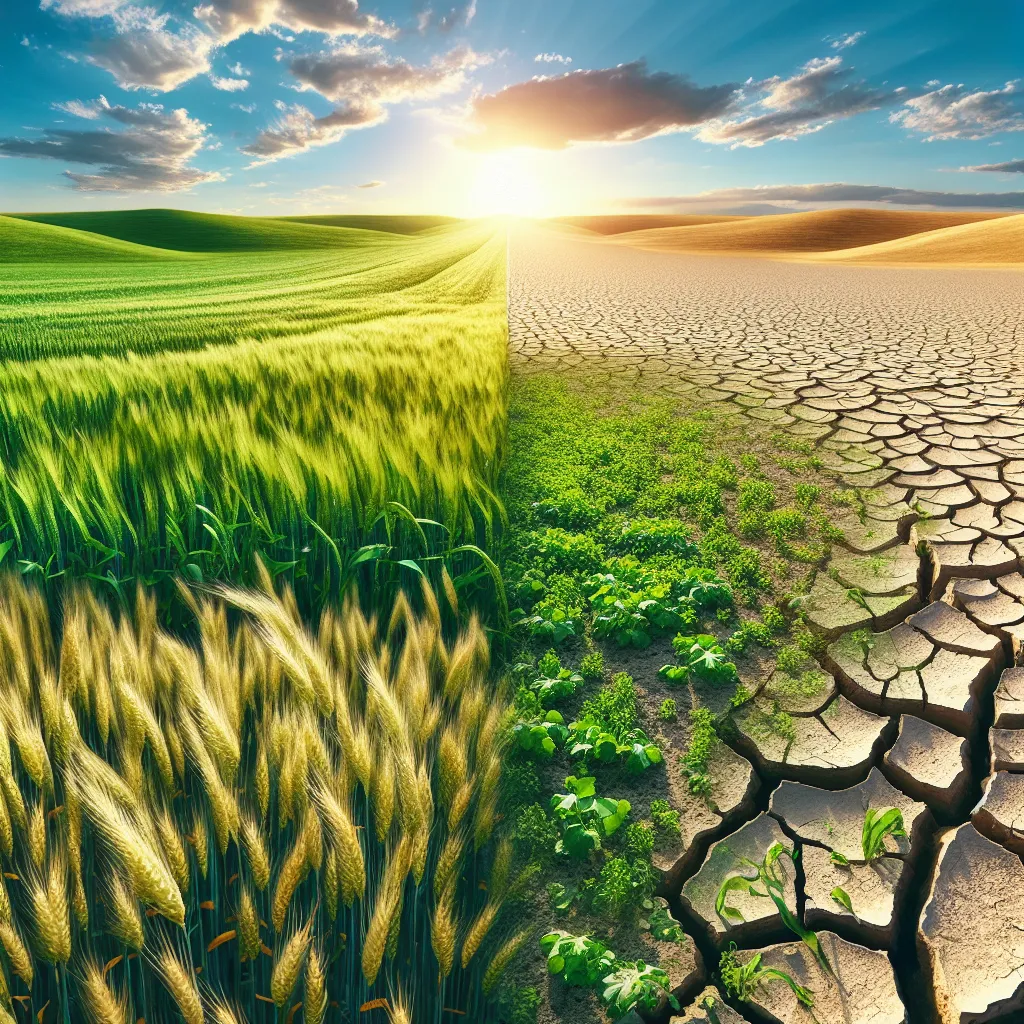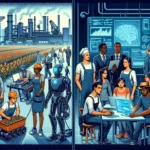Global warming and its effects on agriculture have become increasingly prevalent topics in IELTS Writing Task 2. This theme has appeared in various forms over the past few years, and its relevance is likely to grow as climate change continues to be a pressing global issue. Based on recent trends, we can expect to see more questions related to this subject in future IELTS exams. Let’s examine a relevant question that has appeared in recent tests:
Some people believe that global warming is the biggest threat to agriculture. To what extent do you agree or disagree with this statement?
Analyzing the Question
This question asks for your opinion on whether global warming is the most significant threat to agriculture. To answer effectively, you need to:
- Clearly state your position (agree, disagree, or partially agree)
- Provide reasons and examples to support your view
- Consider potential counterarguments
- Conclude by restating your position
Sample Essay (Band 7-8)
Here’s a sample essay that could score in the Band 7-8 range:
Global warming has emerged as a critical issue affecting various aspects of our lives, and its impact on agriculture is particularly concerning. While I agree that global warming poses a significant threat to agriculture, I believe it is an overstatement to call it the biggest threat, as there are other equally pressing challenges facing the agricultural sector.
Undoubtedly, global warming has severe implications for agriculture. Rising temperatures and changing precipitation patterns can lead to crop failures, reduced yields, and the spread of pests and diseases. For instance, extreme weather events such as droughts and floods, which are becoming more frequent due to climate change, can devastate entire harvests. Moreover, the shifting of climate zones may render some previously fertile areas unsuitable for traditional crops, forcing farmers to adapt or relocate.
However, it is crucial to recognize that agriculture faces multiple threats beyond global warming. Soil degradation, caused by intensive farming practices and overuse of chemical fertilizers, is a major concern that directly impacts agricultural productivity. Additionally, water scarcity, exacerbated by population growth and urbanization, poses a significant challenge to irrigation-dependent farming. Furthermore, the loss of biodiversity, particularly the decline in pollinators, threatens the very foundation of many agricultural systems.
It is also worth noting that technological advancements and innovative farming techniques can help mitigate some of the effects of global warming on agriculture. For example, the development of drought-resistant crop varieties and the implementation of precision farming methods can improve resilience to climate change impacts. These solutions, however, may not be as readily available to address other threats like soil degradation or biodiversity loss.
In conclusion, while global warming undoubtedly presents a severe threat to agriculture, it is one of several significant challenges facing the sector. A holistic approach that addresses multiple issues simultaneously is necessary to ensure the long-term sustainability of our food production systems. Therefore, while we must certainly combat global warming, we should not neglect other critical factors that influence agricultural productivity and sustainability.
(Word count: 310)
 Global warming effects on agriculture
Global warming effects on agriculture
Sample Essay (Band 6-7)
Here’s a sample essay that could score in the Band 6-7 range:
Global warming is a big problem that affects many parts of our lives, including farming. I partly agree that it’s the biggest threat to agriculture, but I think there are other important problems too.
Global warming causes many problems for farmers. The weather is changing, with more droughts and floods happening. This makes it hard for crops to grow well. Also, some places that used to be good for farming are getting too hot or dry. For example, in some African countries, farmers are having trouble growing their usual crops because of less rain.
But there are other big problems in farming too. Many farmers use too many chemicals that hurt the soil. This makes it harder to grow food over time. Another problem is that there isn’t enough water for farming in some places. This is because more people are using water in cities. Also, some helpful insects like bees are dying, which is bad for plants that need them to grow.
However, people are finding ways to help farming deal with global warming. Scientists are making new types of crops that can grow with less water. Farmers are also learning new ways to save water and protect their soil. These ideas can help, but they might not solve all the problems.
In conclusion, I think global warming is a very big threat to farming, but it’s not the only one. There are other serious problems too. We need to work on solving all these issues together to make sure we can grow enough food in the future.
(Word count: 262)
Key Points to Remember When Writing
-
Structure: Ensure your essay has a clear introduction, body paragraphs, and conclusion. Each body paragraph should focus on a main idea.
-
Vocabulary: Use a range of vocabulary related to agriculture and climate change. For higher band scores, incorporate less common words and phrases accurately.
-
Grammar: Use a variety of sentence structures. For Band 7 and above, include complex sentences and different tenses where appropriate.
-
Coherence and Cohesion: Use linking words and phrases to connect ideas within and between paragraphs.
-
Task Response: Directly address the question and provide a clear position throughout the essay.
Essential Vocabulary
Here are some key terms related to global warming and agriculture:
- Climate change (n.) /ˈklaɪmət tʃeɪndʒ/ – Long-term changes in temperature and weather patterns
- Crop yield (n.) /krɒp jiːld/ – The amount of crop produced per unit of land
- Drought-resistant (adj.) /draʊt rɪˈzɪstənt/ – Able to withstand periods of little or no rainfall
- Sustainable agriculture (n.) /səˈsteɪnəbl ˈæɡrɪkʌltʃər/ – Farming practices that ensure long-term productivity without harming the environment
- Biodiversity (n.) /ˌbaɪəʊdaɪˈvɜːsəti/ – The variety of plant and animal life in a particular habitat
- Irrigation (n.) /ˌɪrɪˈɡeɪʃn/ – The supply of water to land or crops to help growth
- Soil degradation (n.) /sɔɪl ˌdeɡrəˈdeɪʃn/ – The decline in soil quality due to improper use or poor management
- Precision farming (n.) /prɪˈsɪʒn ˈfɑːmɪŋ/ – The use of technology to optimize crop yields and reduce waste
Conclusion
The impact of global warming on agriculture is a crucial topic in IELTS Writing Task 2. To excel in this type of question, focus on providing a balanced argument, using relevant examples, and incorporating appropriate vocabulary. Practice writing essays on related topics such as:
- The role of technology in mitigating climate change effects on farming
- Government policies to support farmers affected by global warming
- The relationship between global warming, agriculture, and food security
- Sustainable farming practices in the face of climate change
By preparing for these topics, you’ll be well-equipped to handle a range of questions related to global warming and agriculture in your IELTS exam.


